Hosted and organised by the Paper Traders Association (Nagpur), the FPTA conference saw participation from industry stalwarts who presented their insights on the evolving role of traders in the pulp & paper industry. Union Minister Nitin Gadkari inaugurated the conference and expressed his keenness to support the industry.
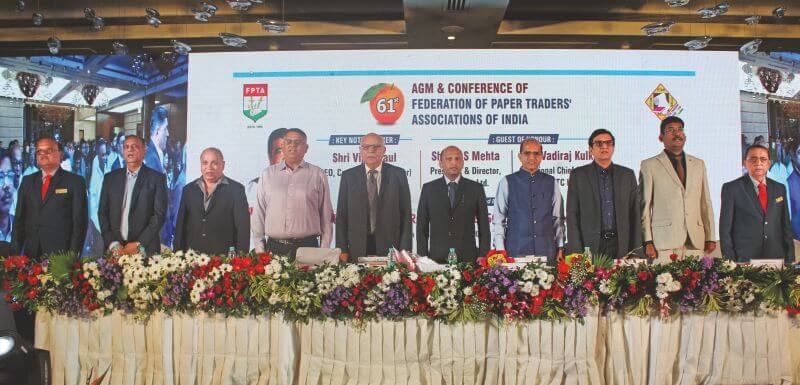
The Paper Traders Association (PTA), Nagpur conducted the 61st All India Paper Traders Conference of the Federation of Paper Traders Association of India (FPTA) in Nagpur from September 17-19. The event was inaugurated by the Union Minister of Road Transport & Highways Nitin Gadkari.
The keynote address was presented by Mr. Vijay Kaul, CEO, Century Pulp and Paper. Mr. A S Mehta, President & Director, JK Paper Ltd. and Mr. Vadiraj Kulkarni, Divisional Chief Executive, ITC PSPD, were the guests of honour while FPTA President Mr. Deepak Mittal gave the presidential address at the conference.
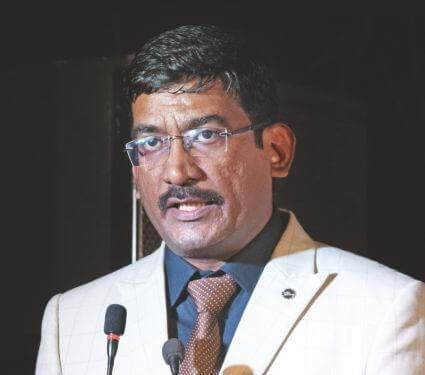
Mr. Ashish Khandelwal, President, PTA, Nagpur, set the tone of the proceedings as he gave the opening remarks at the FPTA conference. He said, “The paper industry including the paper packaging, paper trading, and various other segments are on a swift growth path. Finally, I would like to say that the recommendations and ideas put forth by the dignitaries and the speakers at the conference today for furthering the growth of the trading industry and this association are definitely welcome and appreciated.”
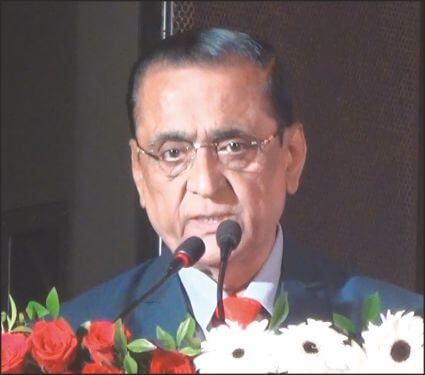
“Since the government has imposed the ban on single-use plastics, the demand for paper will further increase”
Mr. Vijaykumar R. Khandelwal, Chairman, Reception Committee, FPTA, gave the welcome address at the event. He said, “As we are paper traders, I would like to emphasise that around 80 percent of the paper and paper products are manufactured from waste paper. It is our plea to paper manufacturers to increase the sourcing of waste papers domestically as much as possible so that we can reduce our dependence on imports. Since the government has imposed a ban on single-use plastics, the demand for paper will further increase. Today, the cost of raw materials like waste papers has increased, and even ensuring the availability of waste papers has become a challenge. I truly wish that our understanding and cooperation within the industry sustains.”
Watch: IVAX Paper Chemicals Interview
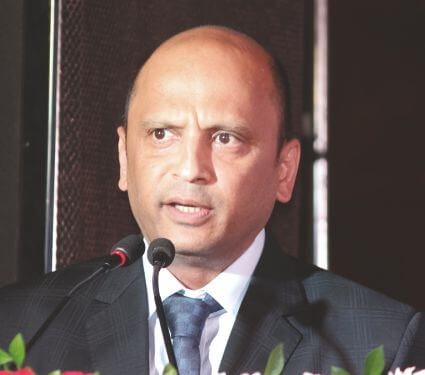
“A large working population and multinational companies’ reimagining of the global supply chains in a country leapfrogging at enormous scale to achieve something special, not only for the Indian economy but potentially for the world. This is the true emerging India@75!”
Mr. Deepak Mittal, President, FPTA, in his presidential address, said, “Today, India is becoming a key focus market for the global brands for – both domestic sales and export hub. It is a clear sign that India is finally making it big in the China+1 manufacturing plans of MNCs. Bob Sternfels, Global Managing Partner, McKinsey & Company, in a recent interview given to an Indian newspaper, said that India will be the world’s future talent factory as it will have 20 percent of the world’s workforce by 2047. He also added that it will not only be India’s decade but India’s century with all the key elements in place.
A large working population and multinational companies’ reimagining of the global supply chains in a country leapfrogging at an enormous scale to achieve something special, not only for the Indian economy but potentially for the world. This is the true emerging India@75!”
About the recent growth surge in the paper industry and the role of the paper traders, Mr. Mittal, informed, “The domestic paper companies are witnessing a growth surge that has never been seen before. The topline and bottomline growth has increased. The margins are good. The exports are at an all-time high. The prices have scaled new peaks and the gap between demand and supply is widening in the favour of the former. New capital investments are also being announced, which is a very good sign – both for the industry as well as the trade. The ban on single-use plastics has also turned many applications toward paper, especially in the food service segment. As per the estimates, the opportunity for the paper and the paperboard segment in replacing single-use plastics is approximately 3-4 lakh tonne per annum (TPA) and this could add an additional 2 percent to the industry’s growth rate. Our per capita consumption of paper is only 14 kg as against the global average of 57-60 kg, which shows that we still have a very long way to go. The industry’s topline, for the first time, crossed the important milestone of 1 lakh crore and is pegged to grow at 10 percent in the next few years.
Now, I would like to talk about trade – and the need to transform itself in order to accelerate and participate in this very exciting growth story. The paper industry, in the last 12-18 months, has witnessed price increases that have never been seen before. The operating conditions in the trade have changed very much in the last couple of years. The rules of the game have changed and we are no longer at the traditional 3-5 years cycle. The cycles have become much shorter, and this could well be the new normal that we will have to adapt ourselves to. The traditional approach of rupees per tonne margins only leads to diminishing returns. This must change now to at least 3-5 percent of Ex Mill Cost plus Cost of Credit. All of you are aware that our working capital requirements have almost doubled in the last 12-18 months. It is in our overall interests to have reasonable and adequate margins to meet the needs of growth and expansion. I would urge fellow paper traders to acquire knowledge, information, gather valuable customer insights, and explore newer business models so that we can become a valuable partner to both our customers as well as our principals. This would also help to transform the nature of the business into a vibrant and very exciting one so that our next generation can join more willingly and participate in this growth.
We appeal to the leaders of the paper manufacturers to form a joint consultative committee consisting of all stakeholders. The committee should focus on innovations in the application of paper, promoting the nature-friendliness of paper, and jointly working towards a healthy trade. We strongly believe that in this multi-polar and interdependent world, increased cooperation becomes vitally important. Today, the Federation of Paper Traders’ Association of India (FPTA) is made up of 35 affiliate associations covering all the states and union territories. It has more than 6000 members. The gross turnover of the trade is INR 75 thousand crore and it contributes around INR 10 thousand crore in taxes and the collective investment of the trade body is close to INR 20 thousand crore.”
He concluded his speech at the FPTA conference by adding, “India’s economy is the fifth largest in the world, and is poised to become the third-largest in the next decade. I am sure that the paper industry and the paper trade, with the support of the Indian government, will write this growth story and contribute to building the nation’s economic, environmental, and social wealth. To conclude with the words of Charles Kettering, ‘We work day after day, not to finish things; but to make the future better… because we will spend the rest of our lives there’.”
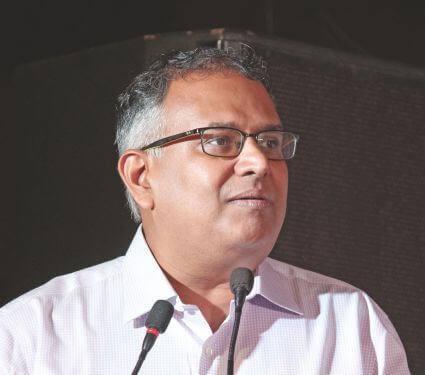
“In my opinion, both the customers and the manufacturers would like the dealers to add more value… Our relationship, through these interventions, meetings, workshops, and conferences, should only get stronger and stronger. And we can, in our own way, add to India’s growing economy!”
Mr. Vadiraj Kulkarni, Divisional Chief Executive, ITC PSPD, who was also the guest of honour at the FPTA event, said, “At ITC, the paper business is a 45-year-old organisation. We are largely the manufacturer of virgin paperboards, and thus, our expertise lies mainly in paperboards than paper. In my understanding, from the onset of COVID-19, we have seen numerous changes. It wouldn’t be wrong to say that the industry has survived and in fact, it is growing, which is good news. Previously, the demand for paper and paper packaging had gone down. We went through a lot of challenges. However, in the last one and a half years, the situation is much better for the board industry. As for the paper industry, this is probably one of the best times ever. Thus, this is good news for the industry, as a whole since the sales volume is good and the demand has returned.
Nevertheless, there are certain challenges regarding the commercial aspects of it. Since dealers operate as an important cord between the paper manufacturers and the customers and there has been a consolidation of the industry, among the printer and the convertors that we are seeing across. Probably, more and more will happen soon in India as well. In my understanding, the industry has come to terms with a lot of uncertainties – both expected and unexpected and is able to deal with them quite effectively. In addition to other business partners, I must also laud and compliment the role played by the dealer community in these trying times and all of you have played an important role!”
In terms of demand for fiber products and the investment of ITC, Mr. Kulkarni, stated, “I think it would be quite robust and great going forward, all thanks to the resilient Indian economy. My assessment of the immediate future is that the economy is going to grow in India. The growth in e-commerce is going to continue. There are going to be more investments in the consumer segments of paper and paperboard. Also, there have been many new investments and international companies are showing great interest but I think the Indian manufacturers will be able to compete well in terms of contributing to ‘Aatmanirbhar Bharat’ and ‘Make in India’ policies. ITC, as an organisation, has been investing in new technologies and new capacities in line with its growth ambition. Our ongoing investments include a high-pressure recovery boiler, the first-ever in India and the pulp mill expansion at the Bhadrachalam plant is underway. We will continue to focus on virgin and speciality paperboards as we also see investments at the Tribeni unit.”
He further added, “While there are a lot of changes taking place in the business models around us and globally such as the expected consolidation by the printers and the converters. As there has been a surge in digital technology and evolution, the role of dealers has also constantly evolved. I have also seen that there has been a kind of generational shift which is happening. As the new generation is coming and taking over, they are coming up with new ideas, different backgrounds, and with a sense of aggressive pursuit of ideas. In my opinion, both the customers and the manufacturers would like the dealers to add more value and not just manage the transactions. Some of the areas that the dealer community can really work hard in is to skill their teams, product specifications for paperboards, sales efforts, IT management, last-mile connectivity, reaching to smaller towns, partnering with manufacturers for market development for new products, especially in the packaging boards, and the digital enablement of the supply chain processes. I know that some of the dealers are significantly investing in developing new solutions. Our relationship, through these interventions, meetings, workshops, and conferences, should only get stronger and stronger. And we can, in our own way, add to India’s growing economy!”
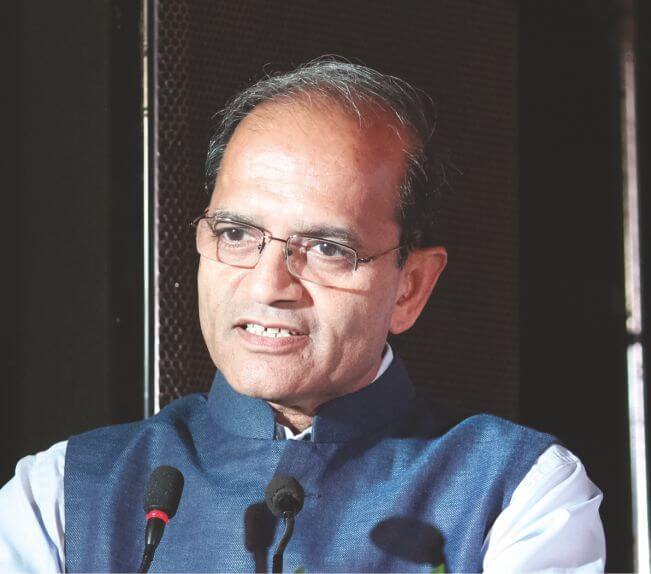
“The advent of digitalisation means that the digital format and the paper will co-exist. Paper is always going to be needed even if we go digital as we have. And it is not just an industrial need but is a huge part of our daily lives.”
Mr. A S Mehta, President, IPMA & President & Director, JK Paper Ltd., “The paper industry is truly resilient and has great capabilities, which was especially seen during the time of COVID-19, but also even before the onset of the pandemic. I say time and again that why do we only talk about the COVID-related crisis when we’d already faced much more turbulent times before the pandemic happened. The paper industry had overcome such trying times successfully. COVID-19 has surely impacted for a certain duration of time. In fact, doing business always entails all kinds of challenges and turbulence on a constant basis. It is part and parcel of doing business! There will always be ups and downs in the business and we need to learn and master the art of managing and thriving in those ups and downs. As a matter of fact, it is mostly in certain times that we are even more successful in handling the downturns. This is what we should learn – the art of managing well in times of crisis. It is quite certain that India is poised to be an attractive market. But there will be all kinds of challenges such as growing competition, and other challenges. We will need to buckle up to handle those challenges. It is quite certain that uncertainties will always be there and it is we who should be certain to handle those uncertainties. There’s a famous saying that goes ‘Tough times never last, but tough people do’!
The dichotomy is that although we know that the times have changed, we don’t change accordingly. We complacently say that the times have evolved. What is needed is that we should introspect the extent to which we have embraced the changes and are ready to evolve further and whether or not we’ve been able to keep pace with the changing times. Is it necessary that the way of operating in the paper trading industry should continue to be the way it has been? It is expected of the paper manufacturers and the paper trading community to keep on evolving. But it should be duly noted that every entity and segment in the sector should make efforts in transforming themselves. Since the customers’ attitudes, behaviours, and outlooks are changing, why should we and our processes remain the same? We need to change everything for the better! It is also important to give the younger generation the elbow room to operate and work in. The successful transitions in businesses will be when the younger people are allowed to work in their own ways.
The paper industry is truly sustainable. We should proactively talk and spread awareness among people about the pro-environment activities of the paper industry as it is one of the most sustainable and responsible industries. The reason we should strive to be as sustainable as possible is not because of the governmental norms but because of our efforts to protect the environment. The industry should even increase their plantations and make adequate efforts in this direction to be wood-positive. I am quite proud to say that we, at JK Paper, have made this our personal agenda and mission. We are committed to do a minimum plantation on 40 thousand acres every year, which we have been surpassing since the last seven years. For this year, we have set the target to do plantations of 50 thousand acres.
On this note, he added, “I would add that India is going to be a growing paper market. The advent of digitalisation means that the digital format and the paper will co-exist. Paper is always going to be needed even if we go digital as we have. It is not just an industrial need but is a huge part of our daily lives. The consumption of paper and paper products will also grow in the times to come. There will be even newer applications of papers. It also seems that the Writing & Printing paper segment is likely to grow unlike the western world where this segment is in a degrowth mode. There will be other segments in the industry which will achieve robust and sturdy growth”, at the FPTA conference.
Since the world is looking at India as their top consideration for sourcing, this will give us even more opportunities for growth in the times to come. We should strive to be competitive, competent, as well as quality-conscious. It will also provide additional growth opportunities as the future of the paper industry is quite promising.”
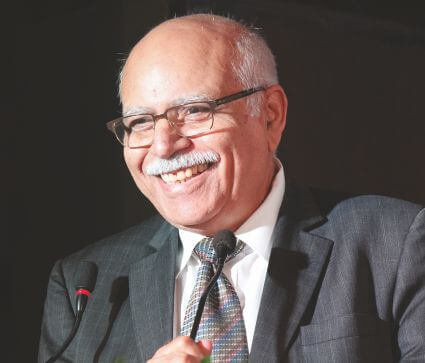
“We are concerned with how to drive growth transformations, strengthen the supply chain, and increase awareness among people that paper is sustainable and biodegradable.”
Mr. Vijay Kaul, CEO, Century Pulp and Paper, presented the keynote address at the FPTA conference, “I was initially in the pulp and fiber business. Thus, I was quite aware of the pulp sector, but not the paper sector. In these seven-eight months of my association with the paper industry, I’ve found the industry to be magnificent and the people who work in the industry including the paper dealers and traders to be equally magnificent. The paper industry certainly seems to be quite promising with huge growth potential.
We are concerned with how to drive growth transformations, strengthen the supply chain, and increase awareness among people that paper is sustainable and biodegradable. If we put in more effort, the paper industry will definitely grow further. I am sure that it is going to grow substantially in the years to come.
I would like to emphasise that we, at Century Pulp and Paper, have worked really hard toward sustainability. We’ve also increased our plantation drives, particularly in the last two-three years. We’ve started planting trees and distributing free saplings to the farmers. In this year itself, we have distributed nearly 2.5 million saplings for free. We are also in continuous talks with the forest department in this regard. Recently, I also met the Chief Minister of Uttarakhand regarding our mission of increasing the green cover. This is going to be greatly important in the coming times. From the environmental point of view, it is often said about the industry that we cut off trees and so on. However, it should also be noted that the Indian paper industry grows more trees than it consumes.”
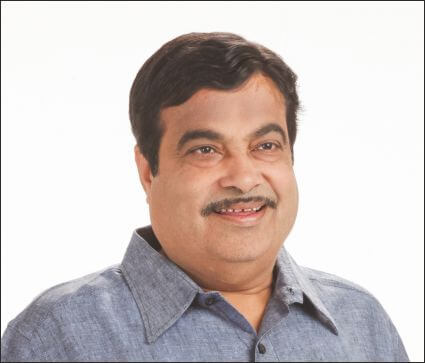
“The future of both the paper manufacturing industry and the paper trading industry is quite bright.”
Minister for Road Transport & Highways Nitin Gadkari, in his speech, said, “I am very much delighted that the Federation of the Paper Traders’ Association (FPTA) has organised the All India Paper Traders’ conference and the 61st Annual General Meeting (AGM) in Nagpur. The FPTA, as the apex body for paper traders in the country, is making significant efforts to promote the usage of paper in the country. The guidance of the dignitaries from the field may throw light on the future path and course of action of the association. I extend my best wishes for the success of the conference and to Aseem Bordia who is going to be inducted as the national president of FPTA. As a member of parliament, I want to extend a welcome to all of you to Nagpur. The office bearers of the FPTA association keep in touch with me and discuss matters concerning the industry. Thus, I am well aware of what the challenges are.
Our country is fifth on the list of the fastest-growing economies in the world. It is also true that a large share of paper which is manufactured gets imported. You must be well aware that the cutting down of bamboo trees was prohibited earlier. I, along with the Forest department, urged the Prime Minister in this regard. Now, the government is making large-scale bamboo plantation drives on wasteland areas. Notably, the large availability of bamboo means raw material security for the paper industry as well as the production of bio-ethanol. Moreover, it will also benefit the environment. It seems that the future of the paper industry is promising. Thus, it is quite certain that the future of both the paper manufacturing industry and the paper trading industry is quite bright. In this regard, I would like to extend my whole support and assistance as and when required.” The session at the FPTA conference ended with a vote of thanks to the Chair.



